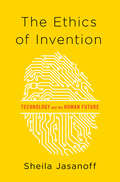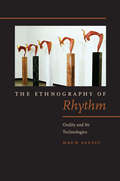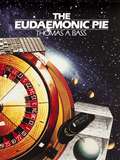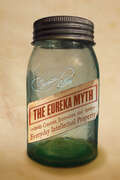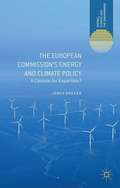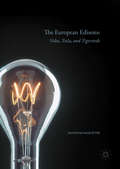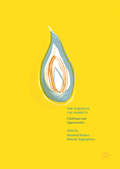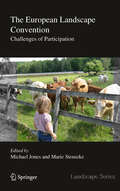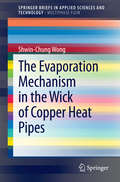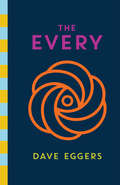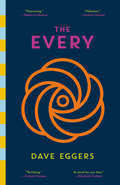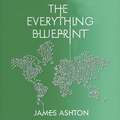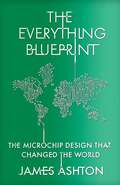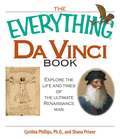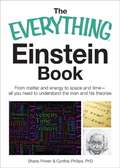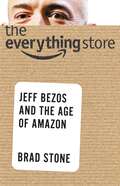- Table View
- List View
The Ethics of Insurgency
by Michael L. GrossAs insurgencies rage, a burning question remains: how should insurgents fight technologically superior state armies? Commentators rarely ask this question because the catchphrase 'we fight by the rules, but they don't' is nearly axiomatic. But truly, are all forms of guerrilla warfare equally reprehensible? Can we think cogently about just guerrilla warfare? May guerrilla tactics such as laying improvised explosive devices (IEDs), assassinating informers, using human shields, seizing prisoners of war, conducting cyber strikes against civilians, manipulating the media, looting resources, or using nonviolence to provoke violence prove acceptable under the changing norms of contemporary warfare? The short answer is 'yes', but modern guerrilla warfare requires a great deal of qualification, explanation, and argumentation before it joins the repertoire of acceptable military behavior. Not all insurgents fight justly, but guerrilla tactics and strategies are also not always the heinous practices that state powers often portray them to be.
The Ethics of Invention: Technology and the Human Future
by Sheila JasanoffWe live in a world increasingly governed by technology--but to what end? Technology rules us as much as laws do. It shapes the legal, social, and ethical environments in which we act. Every time we cross a street, drive a car, or go to the doctor, we submit to the silent power of technology. Yet, much of the time, the influence of technology on our lives goes unchallenged by citizens and our elected representatives. In The Ethics of Invention, renowned scholar Sheila Jasanoff dissects the ways in which we delegate power to technological systems and asks how we might regain control. Our embrace of novel technological pathways, Jasanoff shows, leads to a complex interplay among technology, ethics, and human rights. Inventions like pesticides or GMOs can reduce hunger but can also cause unexpected harm to people and the environment. Often, as in the case of CFCs creating a hole in the ozone layer, it takes decades before we even realize that any damage has been done. Advances in biotechnology, from GMOs to gene editing, have given us tools to tinker with life itself, leading some to worry that human dignity and even human nature are under threat. But despite many reasons for caution, we continue to march heedlessly into ethically troubled waters. As Jasanoff ranges across these and other themes, she challenges the common assumption that technology is an apolitical and amoral force. Technology, she masterfully demonstrates, can warp the meaning of democracy and citizenship unless we carefully consider how to direct its power rather than let ourselves be shaped by it. The Ethics of Invention makes a bold argument for a future in which societies work together--in open, democratic dialogue--to debate not only the perils but even more the promises of technology.
The Ethics of Nuclear Energy
by Sabine Roeser Taebi, Behnam and Roeser, Sabine Behnam TaebiDespite the nuclear accident at the Fukushima Daiichi plant in Japan, a growing number of countries are interested in expanding or introducing nuclear energy. However, nuclear energy production and nuclear waste disposal give rise to pressing ethical questions that society needs to face. This book takes up this challenge with essays by an international team of scholars focusing on the key issues of risk, justice, and democracy. The essays consider a range of ethical issues, including radiological protection, the influence of gender in the acceptability of nuclear risk, and environmental, international, and intergenerational justice in the context of nuclear energy. They also address the question of when, and under which conditions, nuclear energy should play a role in the world's future supply of electricity, looking at both developing and industrialized countries. The book will interest readers in ethics and political philosophy, social and political sciences, nuclear engineering, and policy studies.
The Ethnography of Rhythm: Orality and Its Technologies (Verbal Arts: Studies in Poetics)
by Haun SaussyWinner of the Modern Language Association's Aldo and Jeanne Scaglione Prize for Comparative Literary StudiesWho speaks? The author as producer, the contingency of the text, intertextuality, the “device”—core ideas of modern literary theory—were all pioneered in the shadow of oral literature. Authorless, loosely dated, and variable, oral texts have always posed a challenge to critical interpretation. When it began to be thought that culturally significant texts—starting with Homer and the Bible—had emerged from an oral tradition, assumptions on how to read these texts were greatly perturbed. Through readings that range from ancient Greece, Rome, and China to the Cold War imaginary, The Ethnography of Rhythm situates the study of oral traditions in the contentious space of nineteenth- and twentieth-century thinking about language, mind, and culture. It also demonstrates the role of technologies in framing this category of poetic creation. By making possible a new understanding of Maussian “techniques of the body” as belonging to the domain of Derridean “arche-writing,” Haun Saussy shows how oral tradition is a means of inscription in its own right, rather than an antecedent made obsolete by the written word or other media and data-storage devices.
The Eudaemonic Pie
by Thomas A. BassA classic story about beating roulette with the world's first wearable computers. "A veritable piñata of a book," said The New York Times, which ranges from the invention of personal computers through the history of gambling to breaking the bank in Las Vegas. "Bass has done the best job so far of capturing the marriage of technical imagination and communal coziness that gave rise to Silicon Valley," said the Los Angeles Times. "An extraordinary story," said Nature. "Behind the fun and games there lies an economic parable for the decade just passed." A madcap adventure and insanely comedic, this is "an astonishing and fascinating tale of scientific heroism," said Richard Dawkins.
The Eureka Myth: Creators, Innovators, and Everyday Intellectual Property
by Jessica SilbeyAre innovation and creativity helped or hindered by our intellectual property laws? In the two hundred plus years since the Constitution enshrined protections for those who create and innovate, we're still debating the merits of IP laws and whether or not they actually work as intended. Artists, scientists, businesses, and the lawyers who serve them, as well as the Americans who benefit from their creations all still wonder: what facilitates innovation and creativity in our digital age? And what role, if any, do our intellectual property laws play in the growth of innovation and creativity in the United States? Incentivizing the "progress of science and the useful arts" has been the goal of intellectual property law since our constitutional beginnings. The Eureka Myth cuts through the current debates and goes straight to the source: the artists and innovators themselves. Silbey makes sense of the intersections between intellectual property law and creative and innovative activity by centering on the stories told by artists, scientists, their employers, lawyers and managers, describing how and why they create and innovate and whether or how IP law plays a role in their activities. Their employers, business partners, managers, and lawyers also describe their role in facilitating the creative and innovative work. Silbey's connections and distinctions made between the stories and statutes serve to inform present and future innovative and creative communities. Breaking new ground in its examination of the U. S. economy and cultural identity, The Eureka Myth draws out new and surprising conclusions about the sometimes misinterpreted relationships between creativity and intellectual property protections.
The European Commission�s Energy and Climate Policy
by Jonas DregerThis book offers a deep insight into the genesis and development of the European Commission's energy and climate legislation, focusing on the interplay of politics and science. How does the Commission react when confronted with knowledge? According to the author, the Commission functions as catalyst transforming knowledge into politics.
The European Edisons
by Anand Kumar SethiThis book explores the lives, inventions, discoveries, and significant work of three extraordinary European inventors with noteworthy links to the great Thomas Alva Edison - Alessandro Volta, Nikola Tesla, and Eric Tigerstedt. It explores the business and scientific legacies that these men have contributed to the modern world. Despite prejudices, ill health, financial stringency, geopolitical situations, business rivalries, and in many cases just awful luck, they remained determined to deliver extraordinary scientific and technological developments to a skeptical and unappreciative world. This book is a testament to anyone pursuing their technological dreams for the benefit of society, and will enhance the literature for scholars, researchers, and the well-informed reader with an interest in science, technology, and the personalities involved in history.
The European Gas Markets
by Simone Tagliapietra Manfred HafnerThe European gas industry has experienced extraordinary success over the last decade. A strong, interconnected network of gas pipelines has been developed inside and around Europe, and the LNG trade has also expanded rapidly. However, the European gas industry is now facing a number of new challenges and opportunities, related to both its demand and supply sides. On the demand side, the ambitious EU decarbonisation targets have led to an unprecedented uncertainty of the future gas demand. In fact, the implementation of a climate-based energy policy in Europe challenges the role of natural gas in the long-term European energy mix; in the mid-term natural gas could play an important and cost effective role in the transition towards a low carbon economy. On the supply side, new natural gas supplies are emerging around the world, mainly because of an increase in global LNG supply and the shale gas revolution in the United States. This unprecedented shift in the supply/demand balance is also creating new dynamics in the European gas industry, regarding both the EU security of gas supply architecture and the EU gas pricing mechanism. This book provides a comprehensive analysis of all these challenges and opportunities affecting the European gas industry, with the aim to provide a clear snapshot of a market characterized by growing uncertainty and volatility.
The European Landscape Convention
by Michael Jones Marie StensekeThis important and insightful book provides, for the first time, a broad presentation of ongoing research into public participation in landscape conservation, management and planning, following the 2000 European Landscape Convention which came into force in 2004. The book examines both the theory of participation and what lessons can be learnt from specific European examples. It explores in what manner and to what extent the provisions for participation in the European Landscape Convention have been followed up and implemented. It also presents and compares different experiences of participation in selected countries from northern, southern, eastern and western Europe, and provides a critical examination of public participation in practice. However, while the book's focus is necessarily on Europe, many of the conclusions drawn are of global relevance. The book provides a valuable reference for researchers and advanced students in landscape policies and management, as well as for professionals and others interested in land-use planning and environmental management.
The European Polysaccharide Network of Excellence (EPNOE)
by Patrick NavardThis book provides an essential overview of the science of polysaccharides. It both approaches polysaccharides as a polymer class and provides detailed descriptions of most major polysaccharides (cellulose, mannan, xylan, chitin-chitosan, cyclodextrines). Owing to the multidisciplinary character of the European Polysaccharide Network of Excellence (EPNOE), the book describes all main aspects of polysaccharide science and technology (biology, enzymology, physics, chemistry, materials science and processing). Notations and concepts follow a uniform format throughout the whole work in order to create a valuable reference book on the field of polysaccharide science. Owing to the major importance of industry in the EPNOE, concrete applications are also described in detail.
The European Union as Crisis Manager
by Arjen Boin Mark Rhinard Magnus EkengrenThe European Union is increasingly being asked to manage crises inside and outside the Union. From terrorist attacks to financial crises, and natural disasters to international conflicts, many crises today generate pressures to collaborate across geographical and functional boundaries. What capacities does the EU have to manage such crises? Why and how have these capacities evolved? How do they work and are they effective? This book offers an holistic perspective on EU crisis management. It defines the crisis concept broadly and examines EU capacities across policy sectors, institutions and agencies. The authors describe the full range of EU crisis management capacities that can be used for internal and external crises. Using an institutionalization perspective, they explain how these different capacities evolved and have become institutionalized. This highly accessible volume illuminates a rarely examined and increasingly important area of European cooperation.
The Evaporation Mechanism in the Wick of Copper Heat Pipes
by Shwin-Chung WongThis book discusses the evaporation mechanism in the wick of copper heat pipes. The investigations are based on recent visualization experiments for operating horizontal flat-plate heat pipes.
The Everglades, Florida Bay, and Coral Reefs of the Florida Keys: An Ecosystem Sourcebook
by James W. Porter Karen G. PorterProviding a synthesis of basic and applied research, The Everglades, Florida Bay, and Coral Reefs of the Florida Keys: An Ecosystem Sourcebook takes an encyclopedic look at how to study and manage ecosystems connected by surface and subsurface water movements. The book examines the South Florida hydroscape, a series of ecosystems linked by hydrolog
The Every: A novel
by Dave EggersFrom the award-winning, bestselling author of The Circle comes an exciting new follow-up. When the world&’s largest search engine/social media company, The Circle, merges with the planet&’s dominant e-commerce site, it creates the richest and most dangerous—and, oddly enough, most beloved—monopoly ever known: The Every. Delaney Wells is an unlikely new hire. A former forest ranger and unwavering tech skeptic, she charms her way into an entry-level job with one goal in mind: to take down the company from within. With her compatriot, the not-at-all-ambitious Wes Kavakian, they look for the company&’s weaknesses, hoping to free humanity from all-encompassing surveillance and the emoji-driven infantilization of the species. But does anyone want what Delaney is fighting to save? Does humanity truly want to be free? Studded with unforgettable characters and lacerating set pieces, The Every blends satire and terror, while keeping the reader in breathless suspense about the fate of the company—and the human animal.
The Every: A novel
by Dave EggersFrom the award-winning, bestselling author of The Circle comes an exciting new follow-up. When the world&’s largest search engine/social media company, the Circle, merges with the planet&’s dominant ecommerce site, it creates the richest and most dangerous—and, oddly enough, most beloved—monopoly ever known: the Every.Delaney Wells is an unlikely new hire at the Every. A former forest ranger and unwavering tech skeptic, she charms her way into an entry-level job with one goal in mind: to take down the company from within. With her compatriot, the not-at-all-ambitious Wes Makazian, they look for the Every's weaknesses, hoping to free humanity from all-encompassing surveillance and the emoji-driven infantilization of the species. But does anyone want what Delaney is fighting to save? Does humanity truly want to be free? Studded with unforgettable characters, outrageous outfits, and lacerating set-pieces, this companion to The Circle blends absurdity and terror, satire and suspense, while keeping the reader in apprehensive excitement about the fate of the company—and the human animal.
The Everything Blueprint: The Microchip Design that Changed the World
by James AshtonA gripping look at the rise of the microchip and the British tech company caught in the middle of the global battle for dominance.A big source of tension between the US and China at the moment is technology. And one very small component is now at the centre of this battle for global dominance: the microchip. Controlling chip manufacturing in the 21st century may well prove to be like controlling the oil supply in the 20th. The country that controls this manufacturing can throttle the military and economic power of others.At the heart of this battle is ARM Holdings.Founded in Cambridge in 1990, Arm specialises in microprocessors, and dominates the global smartphone market (their designs feature in 95% of all mobile phones globally). It's a real British tech success story. But it's currently caught in the middle of a war for total control on microchips because whoever controls ARM, controls microchips. The Everything Blueprint describes the titanic power struggle for control of the microchip - told through the story of a British start up that has found itself in the middle. The novel alternates between telling the rise of the Arm and the battle for the microchip to reveal just how important this company is(P) 2023 Hodder & Stoughton Limited
The Everything Blueprint: The Microchip Design that Changed the World
by James AshtonPre-order now: a gripping look at the rise of the microchip and the British tech company behind the blueprint to it all.'A gripping and inspiring read.' Sir James Dyson'A revealing and insightful biography of the company whose blueprints define the digital world.' Chris Miller, author of CHIP WAR: The Fight for the World's Most Critical Technology __________One tiny device lies at the heart of the world's relentless technological advance: the microchip. Today, these slivers of silicon are essential to running just about any machine, from household devices and factory production lines to smartphones and cutting-edge weaponry.At the centre of billions of these chips is a blueprint created and nurtured by a single company: Arm.Founded in Cambridge in 1990, Arm's designs have been used an astonishing 250 billion times and counting. The UK's high-tech crown jewel is an indispensable part of a global supply chain driven by American brains and Asian manufacturing brawn that has become the source of rising geopolitical tension.With exclusive interviews and exhaustive research, The Everything Blueprint tells the story of Arm, from humble beginnings to its pivotal role in the mobile phone revolution and now supplying data centres, cars and the supercomputers that harness artificial intelligence.It explores the company's enduring relationship with Apple and numerous other tech titans, plus its multi-billion-pound sale to the one-time richest man in the world, Japan's Masayoshi Son.The Everything Blueprint details the titanic power struggle for control of the microchip, through the eyes of a unique British enterprise that has found itself in the middle of that battle.__________
The Everything Blueprint: The Microchip Design that Changed the World
by James AshtonPre-order now: a gripping look at the rise of the microchip and the British tech company behind the blueprint to it all.'A gripping and inspiring read.' Sir James Dyson'A revealing and insightful biography of the company whose blueprints define the digital world.' Chris Miller, author of CHIP WAR: The Fight for the World's Most Critical Technology __________One tiny device lies at the heart of the world's relentless technological advance: the microchip. Today, these slivers of silicon are essential to running just about any machine, from household devices and factory production lines to smartphones and cutting-edge weaponry.At the centre of billions of these chips is a blueprint created and nurtured by a single company: Arm.Founded in Cambridge in 1990, Arm's designs have been used an astonishing 250 billion times and counting. The UK's high-tech crown jewel is an indispensable part of a global supply chain driven by American brains and Asian manufacturing brawn that has become the source of rising geopolitical tension.With exclusive interviews and exhaustive research, The Everything Blueprint tells the story of Arm, from humble beginnings to its pivotal role in the mobile phone revolution and now supplying data centres, cars and the supercomputers that harness artificial intelligence.It explores the company's enduring relationship with Apple and numerous other tech titans, plus its multi-billion-pound sale to the one-time richest man in the world, Japan's Masayoshi Son.The Everything Blueprint details the titanic power struggle for control of the microchip, through the eyes of a unique British enterprise that has found itself in the middle of that battle.__________
The Everything Da Vinci Book: Explore the life and times of the Ultimate Renaissance Man
by Shana PriwerWhatever you've heard about Leonardo Da Vinci, the truth is even more fascinating! From his provocative relationship with the church and secret societies such as the Freemasons to the secrets behind his art and inventions, Da Vinci was a man ahead of his time who willingly paid the price to live life his way. This multitalented man, arguably the greatest genius of all time, was not only a magnificent artist, scientist, and inventor, but also a politically-minded radical who defied convention at every turn in his rich, amazing life. With The Everything Da Vinci Book, you'll immerse yourself in the extraordinary mind, heart, and soul of this quintessential Renaissance man, and be inspired to live your own life to the fullest!
The Everything Einstein Book
by Shana PriwerAlbert Einstein was the most famous and influential thinker of his time. His theories of relativity, quantum mechanics, and statistical physics gave birth to a new era in scientific thought and changed the ay people see the universe and their place in it. The Everything Einstein Book walks you through his rise from a lowly patent clerk to a groundbreaking scientist and explains the theories that brought him fame and world renown. Covering everything from photoelectric effect to the unified field theory, this book answers all your questions about the genius, his work, and the age that influenced him.
The Everything Einstein Book: From Matter and Energy to Space and Time, All You Need to Understand the Man and His Theories
by Shana PriwerA Simon & Schuster eBook. Simon & Schuster has a great book for every reader.
The Everything Guide to Mobile Apps: A Practical Guide to Affordable Mobile App Development for Your Business
by Peggy Anne SalzExpert advice on how to succeed in the mobile market!Experts estimate that mobile app revenues will nearly quadruple over the next few years, but for many business owners and entrepreneurs, figuring out how to affordably create and market an app is a daunting challenge. But it doesn't have to be!With The Everything Guide to Mobile Apps, you'll learn all you need to know about creating a mobile app without breaking the bank account. In this book, you'll discover:What to consider when developing an appWhich format best fits your needs and budgetHow to stand out in the app marketThe benefits of including apps in a marketing strategyHow creating an app can improve business revenue From the development stage to marketing and beyond, The Everything Guide to Mobile Apps will help you develop an app that attracts more customers and boosts your business's revenue.
The Everything Parent's Guide to Common Core Science Grades 6-8: Understand the New Science Standards to Help Your Child Learn and Succeed
by Laurie BloomfieldTake the mystery out of middle-grade science!The Common Core, a new set of national educational standards, has been adopted by 45 states across the nation. But if you learned about science the "old" way, you may be having a hard time understanding what your kids are bringing home from school--and why. With information on Next Generation Science Standards and practice exercises and experiments, you'll learn:The rationale behind Common Core standardsThe major scientific concepts your child will be learning at each grade levelThe new requirements for learning concepts and applying them in practical waysHow the Next Generation Science Standards relate to the Common Core Math and English Language Arts standardsHow to help your child with homework and studyingThe Everything Parent's Guide to Common Core Science: Grades 6-8 will give you the confidence to help your kids meet the science expectations for their grade level, excel at school, and prepare for high school and beyond.
The Everything Store: Jeff Bezos and the Age of Amazon
by Brad StoneThe definitive story of Amazon.com, one of the most successful companies in the world, and of its driven, brilliant founder, Jeff Bezos.Amazon.com started off delivering books through the mail. But its visionary founder, Jeff Bezos, wasn't content with being a bookseller. He wanted Amazon to become the everything store, offering limitless selection and seductive convenience at disruptively low prices. To do so, he developed a corporate culture of relentless ambition and secrecy that's never been cracked. Until now. Brad Stone enjoyed unprecedented access to current and former Amazon employees and Bezos family members, giving readers the first in-depth, fly-on-the-wall account of life at Amazon. Compared to tech's other elite innovators--Jobs, Gates, Zuckerberg--Bezos is a private man. But he stands out for his restless pursuit of new markets, leading Amazon into risky new ventures like the Kindle and cloud computing, and transforming retail in the same way Henry Ford revolutionized manufacturing.THE EVERYTHING STORE will be the revealing, definitive biography of the company that placed one of the first and largest bets on the Internet and forever changed the way we shop and read.

